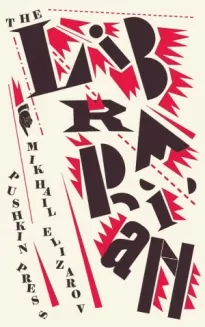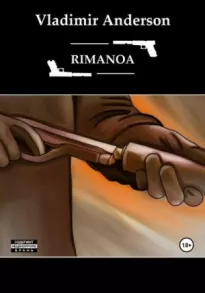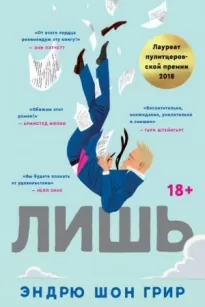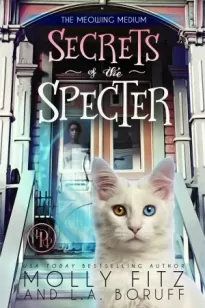The Librarian

- Автор: Михаил Елизаров
- Жанр: Современная проза / Социальная фантастика
- Дата выхода: 2015
Читать книгу "The Librarian"
State Standard 13 309–79
In the grey exercise book the price had been crossed out and a new one written in, in ink—1.65 copecks. Below it was the signature of the person who had crossed out the old price.
Inside the light-blue exercise book there was a page from a tear-off calendar for Thursday, 14 October 1999. There was some kind of astrological nonsense on the front of it.
The sun is in Libra, ruled by Jupiter. Dawn: 07.57. Sunset: 18.33. Take care with you words and feelings; it is advisable to pray and express positive moods and attitudes. Do not overdo sweet foods. You should avoid influencing the liver, gall bladder, blood and skin. Illness of the lungs and bronchi may be treated. The Sun’s stone is labradorite. The Moon’s stone is jacinth.
Out of curiosity I turned the scrap of paper over and my heart fell like a stone, tearing its way through my insides. Printed there in tiny little ant-letters was this:
Feast of the Veil.
This feast has roots that go back deep into the pagan past, when our ancestors celebrated the meeting of autumn and winter. Folk beliefs linked the name of the Veil with the first hoar frost, which “veiled” the earth. After Christianity came to Russia, the festival was celebrated in honour of the Holy Virgin and her miraculous wimple—the Veil or omophorion that she extended above the people praying in a church, protecting them against “enemies both visible and invisible”.
In ancient times the Feast of the Veil marked the beginning of weddings. Believing in the power of the Veil to expedite matrimonial union, girls ran to the church early in the morning and lit candles to the feast. There was a folk belief that the one who lit her candle earliest would be the first to marry.
In ancient times they used to say:
On Veil Day until lunch it is autumn, but after lunch it’s chilly winter.
Veil Day, heat the hut and pray!
Granddad Veil Day, cover the earth with snow and me with a bridegroom!
After Veil Day, a girl will roar like a cow.
The blood rushed to my head in surges of heat. I leaned down lower over the desk, afraid that my face had set into a plaster mask of horror. For a long time I couldn’t catch my breath. The air had been snatched away, as if I’d been plunged into a hole in the ice on a river. Thank God, I’d realized that they were watching me and I didn’t give myself away; I checked myself in time. I knew only too well what the word “Veil” signified in Gromovian terminology…
A scrap of paper that flew in from the previous millennium. It is always here in front of me. My Black Spot and everlasting calendar. From that first day the bunker’s time was frozen at 14 October, an eternal Feast of the Veil…
The pulsing of blood in my head faded away and my breathing returned to normal. My pounding heart clambered its way back up, fastening back together with an excruciating zip the innards that it had ripped in its haste. I forced myself to believe that the calendar page was not a subtle message from Gorn but a stupid coincidence, a misunderstanding.
I was distracted by the sudden rumbling of an invisible mechanism in the wall. I dashed headlong to the hatch. Standing in the niche was a tray of food and a clean porcelain bedpan, smelling of bleach.
Purely for form’s sake I shouted up the lift: “Open up, open up!” The only reply was a tinny echo in the shaft.
I took out the tray: a meat patty with mashed potatoes, salad and tea. I wasn’t hungry, but I ate. Calmly, with dignity, posing for the observers.
Then I put the bedpan full of liquefied terror in the lower compartment of the niche and the tray with the empty plates in the upper section. I closed the hatch. Inside the wall gearwheels started squeaking and a cable creaked…
I carried on performing for my audience for a long time—I blustered and swaggered, passing insolent comments; as soon as my vocal cords recovered, I bawled out songs—in short I played the part of a dashing, devil-may-care blade. Except that I slept with the ceiling lamp on. I tried it without any light, but the cosmic blackness of the bunker was immediately transformed into airless terror. That was more than I could take.
I stealthily studied the ceiling, walls, false windows and scenic photographic wallpaper and failed to discover any concealed spying devices. Apart from the peephole, there was nothing looking into the bunker, so I had been giving my performances of manly courage for the door.
The identical days rolled by, differentiated only by the side dish served with the patty. There was no one admiring the valiant prisoner; no one replied with any signals from which he could conclude that his behaviour had been duly appreciated. There was just the indifferent dumb waiter, delivering food and a bedpan to me four times a day.
The light bulbs were a greater blow to me than even the calendar page. They sent one with every lunch. I took out the tray, and there on the napkin was an electric bulb. Matte, sixty watts. At first I was glad. Then I felt terribly afraid, although I didn’t give any sign that I had guessed: they wanted to provide me with plenty of light for future use. As an experiment I sent one back, and the next day they sent me two. The torture ended when I had accumulated forty or more of these bulbs.
One day I realized that my jailers weren’t interested in my character and I stopped playing the stout-hearted hero. The only thing I still couldn’t come to terms with for a long time was that I had been totally abandoned. The dumb waiter, although one-sided, was still a means of communication, and I insistently tried to establish a dialogue, writing extensive complaints addressed to Gorn, always starting with: “Dear Polina Vasilyevna…”
I requested her politely and urgently to explain the reasons for my incarceration and reproached her for breaking her word, although I knew that, formally speaking, Gorn had kept her word—I had been granted my life and immunity from harm.
In between the reproaches and demands, I tried to cadge petty concessions: give me another blanket, or vitamins and a television, or paracetamol and fresh newspapers. I didn’t receive anything.
However, I can’t claim that they didn’t respond to me at all. Gorn had her own ideas about a prisoner’s requirements. She sent me cotton wool and neat alcohol without any reminders. And they gave me an electric shaver and nail scissors, which I hadn’t dared to ask for.
Every single day I scribbled letters and put them in the dumb waiter beside the dirty plates. Naturally, I never got an answer. No, I’m lying. They sent me an answer once. But not in the form of a letter.
It happened like this: I flew right off the handle and sent Gorn an abusive letter. It began with the words: “Gorn, you’re a fucking bitch and a shitty whore!” Before breakfast I poured out onto paper my entire arsenal of obscenity. I was really hoping that this unprecedented boorishness would spur Gorn into a response.
And so it did. They sent me my lunch as usual, and floating in the glass of stewed fruit was a thick, ripe-green gob of spit. That was the entire correspondence, if I may call it that. However, I concede that it might not have been Gorn who spat in my drink, but the cook. She could have taken offence for her boss.
I apologized at length over several pages, saying that my nerves had given out. I didn’t receive any indication that I had been forgiven, but no one spat in my drink any more. And I was thankful for that much.
I somehow became firmly convinced that they hadn’t stuck me in the bunker in order to do me to death. They fed me and took care of me, which mean they must need me alive. And if Vyazintsev’s life had some value, that meant that Vyazintsev’s death must be undesirable. There was only one way to check this assumption—act out a suicide and lure my jailers into the bunker.
I didn’t know what I would gain from the guards appearing in the bunker—I couldn’t really expect to escape, and when I was exposed I would become a laughing stock. I had to think the whole thing through properly. After running through numerous possibilities, I chose a hunger strike. In the first place, death would be conveniently stretched out over time and Gorn might relent before things became critical. In the second place, it would be harder to unmask my pretence—how could they tell just how emaciated and dehydrated I really was?
I stealthily laid away reserves of bread, hiding it in my blanket… After I had accumulated about a loaf and a half I wrote a farewell letter.
The breakfasts, lunches and supper were sent back untouched. I fed in the darkness on dry bread, and then crept to the radiator to drink, hoping with all my heart that Gorn had not discovered this extra source of water. After slaking my thirst I turned on the light and withered away dramatically in open view. For the first three days I continued to use the bedpan—my body was still processing its remaining reserves. After that the bedpan went back up empty too—what could it have been filled with? The proud prisoner wasn’t eating or drinking.
I arranged a special little privy out of paper and relieved myself there. And I urinated under the radiator, into the natural drain between the floor and the skirting board. And all this in total darkness. The radiator gave me two glasses of water a day at the most, so to some extent I did suffer from lack of fluid. In addition, my concentrated urine had a foul sewer smell. Thank God, the meagre bread diet had a positive effect on the consistency of my stool, which was dry and hardly even smelled at all.
It was the fifth day of my hunger strike. No one seemed in any hurry to visit me. To enhance the effect I coughed like a consumptive, clutching at my stomach with my “withered” hand as if I was stopping a wound—hunger pains. I drew my cheeks farther and farther in, imitating extreme emaciation, and supported myself against the wall when I walked—a performance worthy of an alumnus of the Institute of Culture. Then I lay down on the couch, covered myself with the blanket and lapsed into feigned sleep. I was hoping crazily that soon the bolt would clatter and Gorn would walk into the bunker. Then I would have raised myself up on weak arms, forced apart my dried-out lips—in my grief I had eaten my entire store of stale rusks under the blanket and now I was terribly thirsty—and said: “Get out… I want to die…” and collapsed, with my sunken chest slumping back onto the couch.
Perhaps I was misled by the lack of a clock and I started expiring too soon. The enclosed space gave rise to a different sense of time. Later I tormented myself with the idea that I was in too much of a hurry, but on the other hand everyone’s body has its own limits, and the old women had to take that into account.
The bolt didn’t clatter. Gorn didn’t come. I urgently needed to pee. I gave in and crept down onto the floor. The dumb waiter clattered—it had brought lunch. I suddenly felt disgusted: I was lying on my side under the radiator, easing my bladder in brief rivulets so that it would have time to seep away. The bunker smelled like a public toilet, and up there no one cared what was happening to me.
In a frenzy I got up, switched on the light and opened the hatch. I took out the bedpan and pissed like a human being. And I tipped my entire privy into it as well. I couldn’t give a damn what the old women would think when they saw the three-day heap.
I dragged the tray out of the niche and greedily gulped down the soup. The main course was schnitzel with mashed potatoes— I thought I had never tasted anything more delicious in my life. And that was the end of my hunger strike. I put the plates, licked completely clean, back into the dumb waiter. The mechanism’s gear wheels squeaked and the echo of the shaft cruelly distorted the mechanical noise into croaking laughter.
I made my second, and last, attempt a month later. I decided to commit suicide again—this time by slashing my wrists. The “blood” was made of water, ground brick and a portion of strawberry jam. I mixed the ingredients together in a glass.
In the morning I sent a letter and stood in front of the door— my jailers had to see my Roman hara-kiri. I crushed a light bulb under the sole of my shoe, picked up an extremely thin petal of glass off the floor and ran it across my veins (not even a scratch) and turned away quickly. I had filled my mouth in advance with the brick-and-jam ersatz, and I spat it out, then showed my wrists covered in “blood” to the peephole and sat down at the desk to die—with my back to the door. I kept adding small amounts of blood from the glass, so that it flowed off the desk in a thin, convincing trickle. I thought it was a realistic picture.
It took great self-restraint to show the strength gradually draining out of me, to melt way slowly, like a snowman. I laid my cheek on an exercise book and froze. And then the mental count began: one, two, three, four, five… and on up to sixty—a minute. Sixty minutes—an hour. With every hour that passed I persuaded myself to remain patient and be a little more dead… The night passed. The dumb waiter woke up as if nothing had happened. But the old scumbags hadn’t even thought of coming! Even if they had seen through my amusing hunger strike, they had no right to have any doubts about veins! I really had almost died!
The truth was hard. No one was watching me. Or if they were, they couldn’t give a rotten damn for my ignominious dramatic efforts. In a fit of fury I hammered the chair to pieces against the door, but then I put it back together again. From that day on I knew for certain that if I croaked, the bunker would simply be loaded with a new “grandson”.
I discovered unexpected positive aspects to this unpleasant discovery. Round-the-clock acting was terribly exhausting. I was finally able to relax. I wasn’t crushed by the sense of isolation that suddenly flooded over me. I ate regularly, rubbed myself down with alcohol, combed my hair, shaved and did my exercises. After a month of shoddy acting my shoulders were cramped into a proud bearing. I suffered fits of terror less and less often. An inexperienced diver feels the discomfort of immersion in his chest for the first few seconds. But he only has to get past that urge to breathe in—and there’s still a long way to go to genuine asphyxiation…
I thought up something to do to occupy my mind. After all, it was no accident that they had provided me with exercise books and a bundle of ballpoint pens.
In my long-ago childhood I had imitated the example of the Young Communists of the Sixties, who sent time capsules with greetings to themselves into the Communist future, by writing letters to myself. Sometimes I wrote and sealed the envelope, agreeing with myself that I would open it in ten years’ time. That was how I learned to my surprise that a person’s handwriting ages together with him. Often I cut into the soft, bluish bark of a poplar, imagining that some time, years later, when I grew up, I would touch those scars on the tree and remember the boy in a knitted blue jacket and a woolly “cockerel” cap scraping at the trunk with his key, and that would be a greeting sent across the years.
Working with a view of the Kremlin was absorbing; I didn’t feel at all like crazed Nestor, scribbling his Tale of Bygone Years. I wrote, and in the pauses I turned off the lamp and rested in the dark. The pitch darkness transformed the bunker into a black box and I was the recording mechanism inside, which would one day be found and read. The grey exercise book came to an end and I started on a brown one…
My first despondent leisure hours as a chronicler were enlivened by the Book of Strength (The Proletarian Way). The storyline was this. It is five years since the blast of war fell silent. The country is rebuilding its economy on a peaceful basis. During the war years the plan was fulfilled by superhuman effort and extra-long work shifts. The new life requires not merely enthusiasm but also innovative thinking. Many difficulties arise on this path, including the conservatism of certain enterprise managers. A difficult situation has arisen at the Proletarian Mine. The engineer Solovyev, a former front-line soldier, is at the centre of the plot. He tries to break down the established ways of doing things in order to mechanize work at the coalface. Solovyev is opposed by Basyuk, the head of the mine, who is obsessed with the stereotypes of wartime—to fulfil the plan at any price, even by last-minute storming tactics. Basyuk is not capable of understanding that the grandiose prospects of peacetime construction require different tempos and levels of productivity that cannot be achieved with outmoded equipment. The failure to modernize safety systems results in an accident. Basyuk tries to shift all the blame for what has happened onto Solovyev. It takes all the determination, grit and candour of such seasoned war veterans as the Party organizer Chistyakov and the coalface workers’ foreman Lichko to ensure that the genuine culprit receives his deserved punishment…
After reading the Book of Strength I tried to break down the door; a pointless and painful endeavour, the excess of unnatural power almost left me a cripple. I didn’t notice that I had given myself a hernia lifting the extremely heavy oak desk that I used to ram the unyielding armour plate. The door didn’t budge, but the oak started to crumble. The effect of the Book wore off, and I was racked by fierce pains in my stomach and back. It was no wonder—the Book activated the secret reserves of physical strength of the individual reader. At that moment my maximum strength was limited by the constraints of my body, and even a grenade launcher wouldn’t have blown that door in.
I managed, at the cost of skinning my fingers, to bend the hatch cover of the dumb waiter slightly, but I only convinced myself that there was no escape through the shaft—a block of steel with practically no gaps closed it off at the top.
I had clearly damaged the hermetic seal of the bent hatch cover, because sounds from the invisible kitchen started reaching the bunker: radio-station jingles, music, the voices of the cooks, the clatter of kitchenware in sinks.
Always at the same time, between breakfast and lunch, a retro music station played Soviet variety music. The programme lasted for about half an hour, and I allowed myself the pleasure of stopping work and listening to Pakhmutov, Krylatov or Frenkel.
I made yet another attempt to communicate by letter, sending two brief blackmailing epistles: I threatened to destroy the Book of Strength. But they sent me the Book of Power (Fly On, Happiness). This short novel in just over two hundred pages was a paean of praise to the heroism of the virgin-soil pioneers. At the summons of the Party, young people have come from every corner of the Union to assimilate previously uncultivated lands. Yevgeny Lubentsov has only recently graduated from an agricultural academy and has been invited to stay on for postgraduate study. The prospects before him are tempting: to finish his Ph.D. and to live in the big city. However, in the spirit of Pavel Korchagin, Lubentsov decides to go to the virgin lands as an agronomist. He deliberately chooses a backward Machine Tractor Station. Lubentsov has to demonstrate great organizational talent in order to get the station working properly. He gradually learns to understand people. At home he was in love with Elina Zaslavskaya, an attractive-looking girl whom he regarded as talented and high-minded. But on the virgin lands he comes to know the value of collectivism and comradeship, and this helps him to see through Elina’s essentially bourgeois nature. For her, heroic, noble labour in the name of the people and the country is nothing but romantic nonsense. Lubentsov realizes that Elina cannot remain his friend and companion for the rest of his life. He finds a new love in the ploughwoman Masha Fadeyeva…





